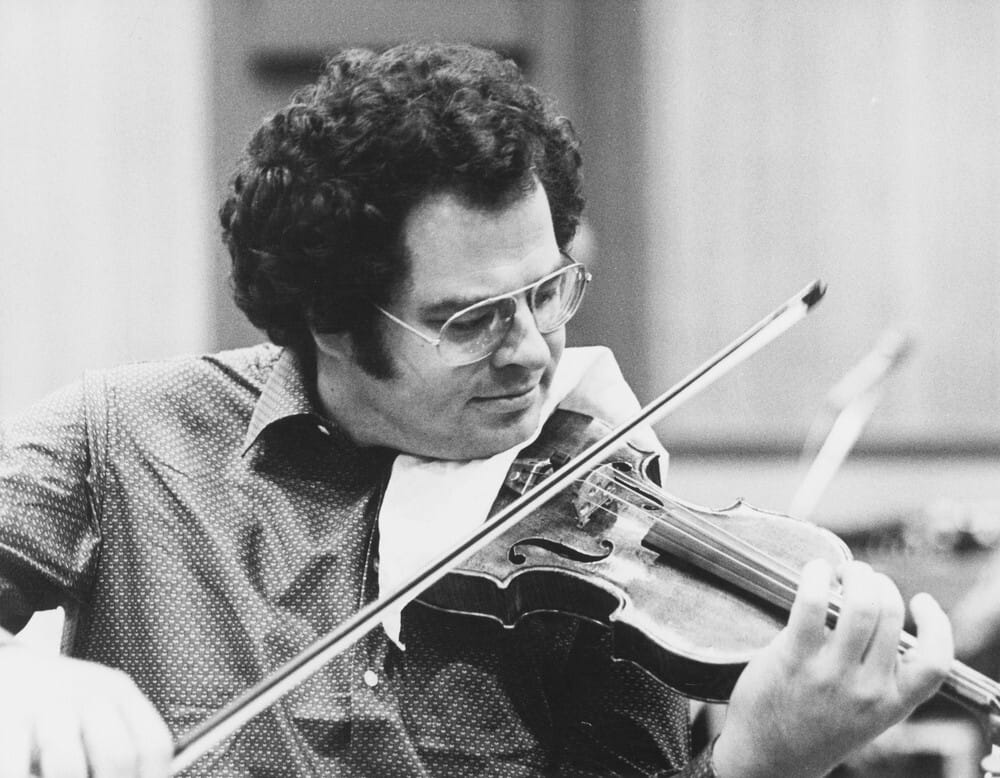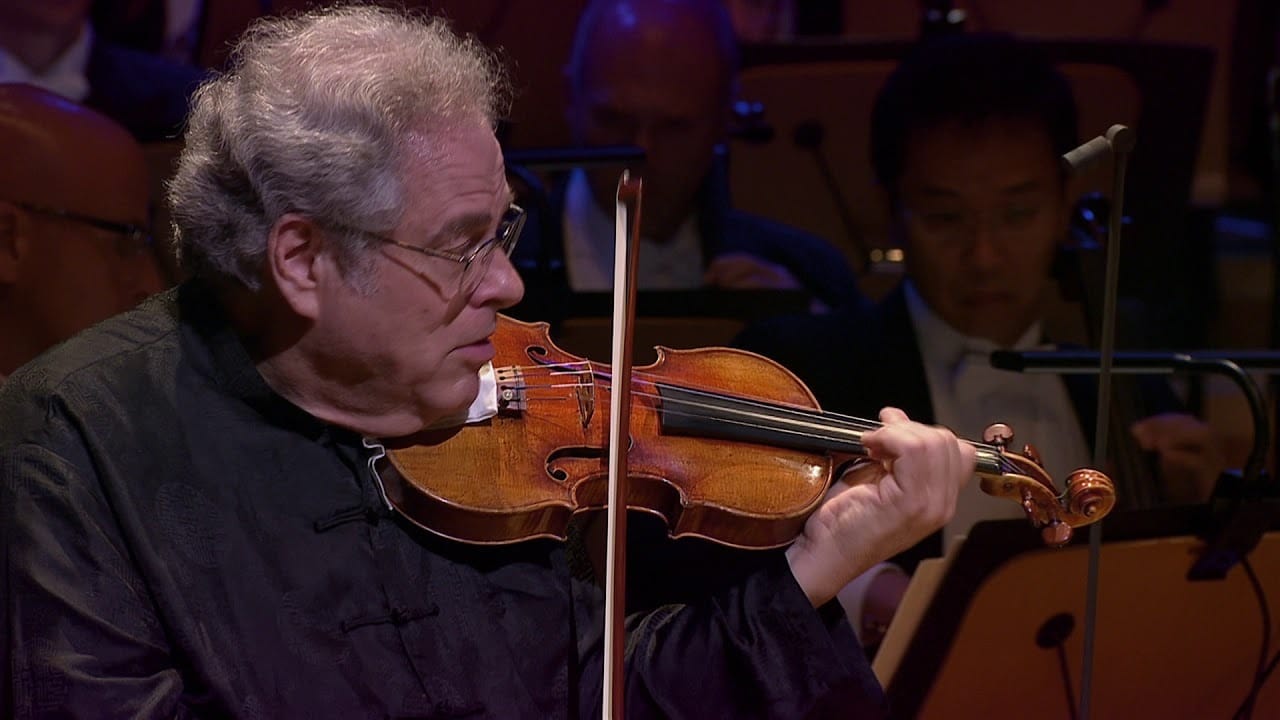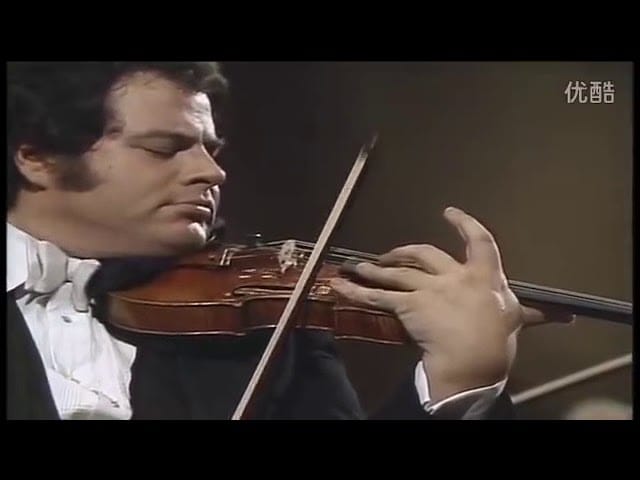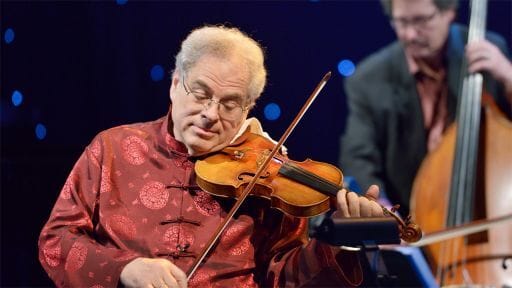- The Weekly Mensch
- Posts
- The Weekly Mensch: Itzhak Perlman
The Weekly Mensch: Itzhak Perlman
The limitless music of transmission and expression for those who can't
Yom HaShoah commemorates the more than six million souls who perished due to Nazi barbarism during the Second World War. It is a solemn day of remembrance, reflection, and profound respect—not only for those we lost but also for the resilience and courage of those who survived.
Survivors emerged from unimaginable horrors, carrying with them memories that shaped their lives. Despite enduring tremendous loss, they rebuilt communities, revived traditions, and passed down values that continue to inspire generations.
Their legacy teaches us invaluable lessons: Persevere in the face of adversity. Remain grounded in ethical and moral principles. Cherish education and lifelong learning. Speak truthfully, act courageously, and uphold dignity.
As we honor the memory of those who perished, we also celebrate the strength of survivors. Their resilience is not just about survival; it is about rebuilding life with purpose, integrity, and compassion. May we embody these lessons, ensuring that the legacy of those who endured continues to guide us toward a more just and compassionate world.
This edition of The Weekly Mensch is in loving memory of all the souls we honor and remember during Yom Hashoah. The souls we shall never forget.
Us in a Nutshell
We are passionate about the lives, the impact, and the experience of Jewish baby boomers who have changed our world. From finance to the arts, we write about the stories of contemporary heroes who — significantly and meaningfully — changed the face of their respective industries, often starting with nothing but a legacy of exile. We tell their stories for the timeless lessons of intelligence, ethics, and resilience they underline. And we also share some fun anecdotes! Nathan Tob is a fourth-year student at the Queen Mary University of London. He studies Economics, Finance, and Management. Davy Sokolski is a third-year student at Columbia University in New York. He studies International Political Economy.
What is a Mensch?
Leo Rosten defines mensch as “someone to admire and emulate, someone of noble character.” Dr. Saul Levine writes in Psychology Today that a mensch’s personality characteristics include decency, wisdom, kindness, honesty, trustworthiness, respect, benevolence, compassion, and altruism.
Itzhak’s Rapid Bio

Credit: Spotify
Itzhak Perlman, born on August 31, 1945, in Tel Aviv, is widely regarded as one of the greatest violinists of our time. Raised in a Jewish family that had immigrated from Poland, Perlman showed an early fascination with music, first inspired by hearing classical pieces on the radio. He began playing the violin at age three, even after being turned away from the Shulamit Conservatory for being too small to hold the instrument. Undeterred, he taught himself the basics before being formally accepted a year later.
At age four, Perlman contracted polio, which left him with permanent paralysis in both legs. He learned to walk with crutches and perform seated, a visible challenge that never diminished the force of his artistry or the warmth of his personality. By age 10, he gave his first recital in Tel Aviv, and at 13, he moved to the U.S. to study at Juilliard under Dorothy DeLay and Ivan Galamian. A year later, his appearance on The Ed Sullivan Show launched him into the American spotlight.
Perlman’s career has spanned decades, filled with Grammy- and Emmy-winning recordings, solo performances with every major orchestra in the world, and collaborations ranging from classical to klezmer to film scores (including the unforgettable solo in Schindler’s List). Beyond his technical brilliance, Perlman is known for his joy of performance, profound musical expression, and his ability to connect with audiences across generations and backgrounds.
He has also devoted himself to teaching and advocacy, particularly in expanding access to music education and championing artists with disabilities. In addition to holding teaching positions at Juilliard and founding the Perlman Music Program for young musicians, he has become a powerful voice for inclusion and resilience in the arts.
Itzhak Perlman’s story is one of extraordinary talent shaped by perseverance, grace, and deep humanity. Whether on stage, in the classroom, or through outreach, he has shown the world that the power of music lies not just in perfection—but in the ability to overcome, uplift, and connect.
Itzhak’s Life Lessons
1. Turn limitations into your stage
At just four years old, Itzhak Perlman contracted polio, a disease that left him with lifelong mobility challenges. But rather than seeing this as a barrier to his dreams, Perlman treated it as part of his identity and never let it interfere with his pursuit of excellence. He learned to play the violin while seated and walking with crutches, not as a limitation but as a new way to perform. Audiences quickly came to admire not just his technical brilliance but the deep emotional power of his presence on stage. One unforgettable moment came during a 1995 performance at Lincoln Center. Midway through, a string on his violin snapped. Rather than stopping, he calmly adjusted and continued to play the piece on three strings, improvising with astonishing grace. Afterward, when asked how he did it, he replied: “Sometimes it is the artist’s task to find out how much music you can still make with what you have left.”
Limitations don’t have to hold us back, they can be the very stage we rise from. Whether it’s physical, emotional, or circumstantial, every challenge carries within it the opportunity to create something uniquely powerful. When we stop waiting for perfect conditions and instead embrace what we have, we tap into a kind of strength and authenticity that can move others. Like Perlman, we each have the ability to turn our broken strings into beautiful music.
2. Pass It On: Greatness multiplies through teaching
For Itzhak Perlman, legacy isn’t just about solo fame or standing ovations, it’s about nurturing the next generation. Despite being one of the most celebrated violinists in the world, he has consistently dedicated himself to education and mentorship. Through the Perlman Music Program, which he co-founded with his wife Toby, Perlman has guided countless young musicians, instilling not only technical skill but also discipline, curiosity, and heart. He often says, “Teaching is the best way of learning,” and in every masterclass, he passes on not just technique but the emotional depth and storytelling that define his artistry. One student recalled how, during a lesson, Perlman paused and said, “Don’t just play the notes. Play the life between them.” That’s the essence of what he gives: not just instruction, but inspiration.
True greatness is measured by what we give to others. Perlman reminds us that whatever our craft, knowledge, or passion, it grows richer when shared. Passing on what you’ve learned ensures that your impact lives far beyond your own achievements. In doing so, we don’t just preserve excellence—we multiply it.
3. Play for those who can no longer speak
Itzhak Perlman’s music has always carried a weight deeper than melody, it’s a voice for those who were silenced. As the child of Polish Jewish immigrants who narrowly escaped the horrors of the Holocaust, Perlman grew up acutely aware of the fragility of life and the responsibility of remembrance. His performances of pieces like Schindler’s List or traditional Jewish works aren’t just concerts, they are acts of memory. He once described playing at Auschwitz as one of the most emotionally difficult experiences of his life, saying that music, in that moment, felt like “the only thing that could speak.” Whether on the concert stage or through his activism, Perlman has used his violin not only as an instrument of beauty but as a vessel of history that channels both loss and resilience.
Music and more broadly, any form of expression, can carry the weight of memory. In a world where silence often follows tragedy, his work reminds us that art has the power to honor the past, give voice to the voiceless, and ensure stories are never forgotten. Whether through performance, storytelling, or simply bearing witness, we each have a role in keeping memory alive.
The Quote of The Week
“Sometimes it is the artist’s task to find out how much music you can still make with what you have left”



Reply